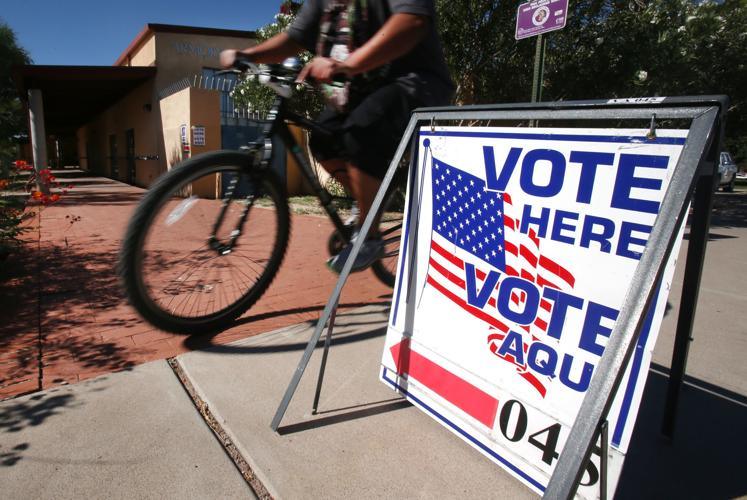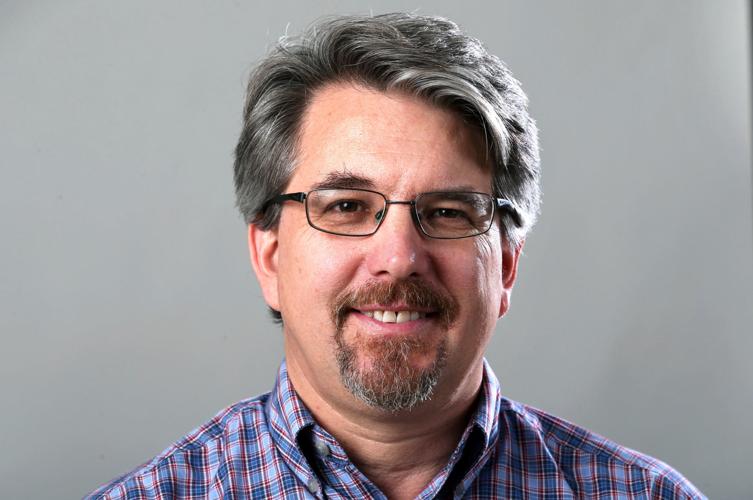You can look at Proposition 306 as solving a clearcut clean-elections problem that arose two years ago.
In 2016, Democratic candidates paid more than $80,000 in clean-elections campaign money to the УлшжжБВЅ Democratic Party for nebulous services, in what amounted to a transfer of public money to a political party. It was fishy, and Prop. 306 would ban this.
But looking at Prop. 306 as the resolution to this short, clear story is missing the long, convoluted story that Prop. 306 also seeks to resolve, in the second part of the initiative. Thatтs the story of УлшжжБВЅ starting a public campaign-financing system, of dark money emerging as a major force in УлшжжБВЅтs elections and of the Clean Elections Commission asserting itself as a regulator making political spending more transparent.
УлшжжБВЅ voters barely approved the initiative that brought the Citizens Clean Election Commission into existence back in 1998. It passed by 51.2 percent to 48.8 percent. By the 2000 election, a five-member commission (made up of two Democrats, two Republicans and an independent) had established the stateтs new system for funneling public money to candidates who qualified, and candidates flocked to the system. Who wouldnтt prefer getting state funding to wasting time fundraising?
People are also reading…
But some of the stateтs conservatives, especially those with money to spend on campaigns, didnтt like the system.
Campaign consultant and congressional staffer Steve Voeller founded the УлшжжБВЅ Free Enterprise Club in 2005. The club never liked public campaign funding, as Jonathan Paton, spokesman for the pro-Prop. 306 campaign said Tuesday.
тThereтs a history pretty much since the inception of the club,т said Paton, a former state senator from УлшжжБВЅ. тI think you could say that was one of their central tenets т public money for political campaigns is something they oppose.т
In 2008, the club filed suit over the way the commission was handing out money. Its тmatching fundsт system would give enough money to clean-elections candidates to match the private fundraising of candidates who didnтt use the public system.
The U.S. Supreme Court ruled by a 5-4 vote in 2011 that the matching-funds provision violated the First Amendment, so the matching funds were replaced by standardized funding.
In the meantime, the courtтs Citizens United decision unleashed a flood of new money into elections. In УлшжжБВЅ, one of the first groups to funnel it to candidates was the УлшжжБВЅ Free Enterprise Club. As a 501(c)4 social-welfare group, the club took in millions in anonymous donations and spread it out to help favored candidates, spending more than $1 million on the 2014 primary elections alone.
That same year, Republican Michele Reagan won the race for secretary of state, promising in part to crack down on dark-money spending. Once in office, though, she didnтt. And the Citizens Clean Election Commission tried to take up the slack. Citing the language of the 1998 initiative, the commission established a rule to force groups that engage primarily in politics to disclose their donors.
The next year, the backlash came. The Legislature passed a law, SB 1516, backed by the Secretary of Stateтs Office, that removed that officeтs authority to investigate dark-money groups as long as they are in good standing with the Internal Revenue Service. And the Free Enterprise Club pushed an initiative that would have defunded the Clean Elections Commission entirely. It failed.
тThe commission was just trying to regulate disclosure of independent expenditures,т said attorney Jim Barton. тThe Republicans in the Legislature wanted to exempt groups from having to disclose donors.т
Barton is now leading a lawsuit challenging the constitutionality of SB 1516, and arguments are scheduled for Wednesday morning in Phoenix.
At the same time the Secretary of Stateтs Office was fighting the commission, the Governorтs Regulatory Review Council also got involved. That five-member group, dominated by Republicans including Voeller т the founder of the Free Enterprise Club т tried to veto the commissionтs claimed oversight authority.
When the Secretary of Stateтs Office was forced to choose sides, though, it ruled against the regulatory council.
In 2017, the issue reached a sort of stasis, said Elections Director Eric Spencer. But then, in November, the УлшжжБВЅ Advocacy Network filed suit challenging SB 1516.
тEverything would have remained with this armistice, had this outside group not filed a lawsuit,т he said. тAll parties were probably willing to eat their grievances and go about their lives.т
This spring, Scot Mussi, head of the Free Enterprise Club, got Rep. Doug Coleman to sponsor the resolution that became Prop. 306.
Tom Collins, executive director of the Clean Elections Commission, argues the initiative would give the governorтs allies in the council a free hand to protect dark money.
тPart 1 is not serious,т Collins said of the initiative. тItтs the sugar to make the medicine go down. If they (voters) see the first part is about parties, they may not read to the second part, which is about regulating political spending.т
But Paton, the spokesman for the pro-306 campaign, said of the two-pronged initiative: тThere is a logic to it т that they (the commission) have made up their rules as theyтve gone along. There are no checks or balances on it. They make up a rule, and thatтs the law.т
Unfortunately, theyтre the only authority left willing to regulate dark money. Thatтs what makes their allegedly capricious rule-making valuable anyway.































